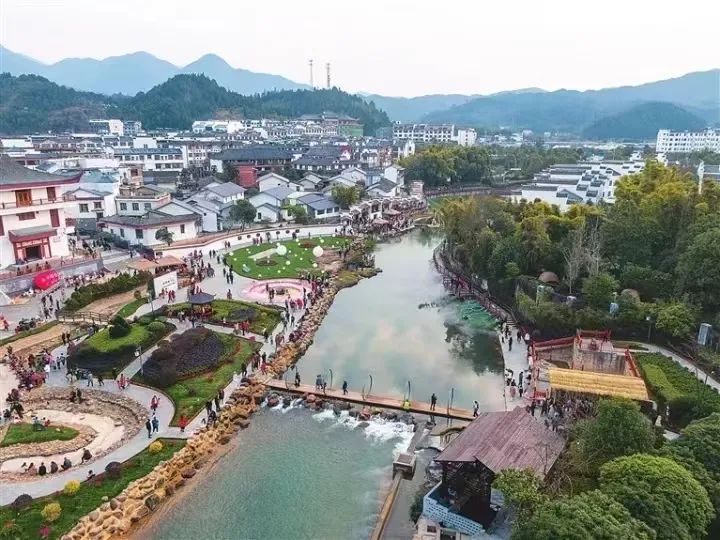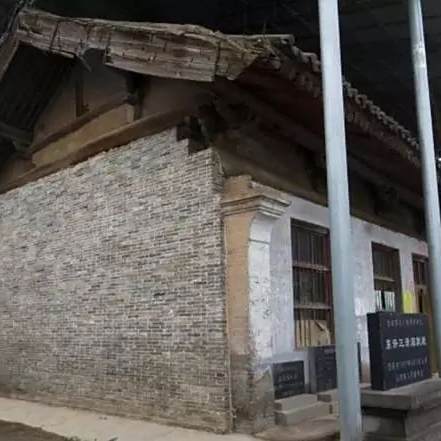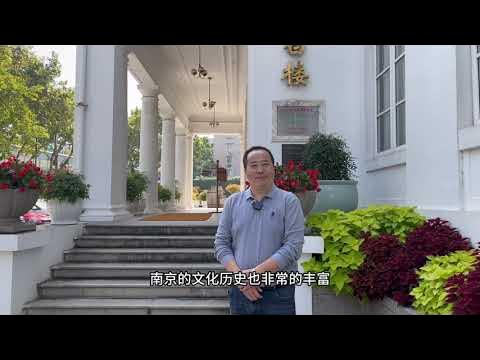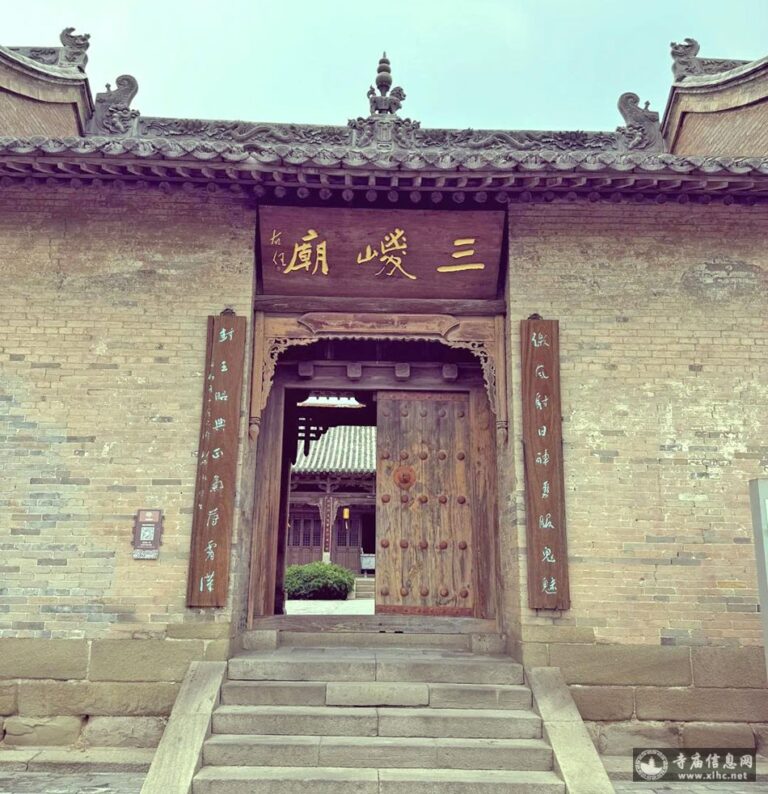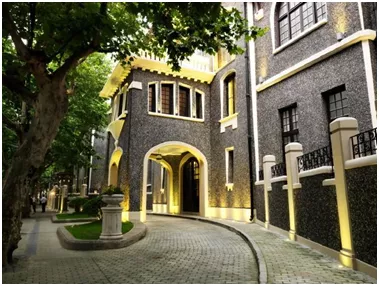Suzhou Tuisi Yuan: The Ultimate Guide to Jiangsu’s Tranquil Classical Garden
An Essential Guide to Visiting Suzhou Tuisi Yuan
In This Guide
- An Essential Guide to Visiting Suzhou Tuisi Yuan
- The Rich History of Suzhou Tuisi Yuan
- Main Highlights: What to See at Suzhou Tuisi Yuan
- Planning Your Visit: A Practical Guide
- Tickets, Hours, and Booking
- How to Get There
- Local Cuisine and Accommodation
- Frequently Asked Questions
- Final Thoughts on Your Trip
Nestled within the picturesque water town of Tongli, Suzhou Tuisi Yuan, also known as the Retreat and Reflection Garden, stands as a testament to the elegance and artistic mastery of traditional Chinese landscape design. Established between 1885 and 1887 during the late Qing Dynasty, this exquisite garden was crafted by the renowned local painter Yuan Long at the behest of Ren Lansheng, a former military official who sought solace and introspection after his political downfall. The garden’s name, derived from a classic text, translates to “Retreat and Reflection,” embodying its purpose as a serene space for contemplation.
Covering an area of 5,674 square meters, Tuisi Yuan is a harmonious blend of natural beauty and architectural sophistication. Its layout, which unfolds from west to east, features a series of interconnected halls, courtyards, and meticulously designed gardens, showcasing the quintessential elements of Jiangnan garden aesthetics. Each corner reveals a new perspective, inviting visitors to wander through its winding paths, serene ponds, and lush greenery, all while evoking a sense of tranquility.
Recognized as a key cultural heritage site and included in the UNESCO World Heritage list for Suzhou Classical Gardens, Tuisi Yuan is not merely a visual delight but also a cultural treasure. It provides a glimpse into the leisurely pursuits and refined tastes of the gentry class during the Qing era. As you explore this enchanting garden, it becomes evident why it holds such a revered place in the hearts of both locals and travelers alike—an invitation to pause, reflect, and relish the beauty of a bygone era in the heart of one of China’s most cherished water towns.
The Rich History of Suzhou Tuisi Yuan
Nestled in the picturesque water town of Tongli, Suzhou Tuisi Yuan, or Retreat and Reflect Garden, offers a captivating glimpse into the cultural and historical tapestry of late Qing Dynasty China. Constructed between 1885 and 1887, this exquisite garden was commissioned by Ren Lansheng, a former military official who, after falling from grace, sought solace and a new purpose in his homeland.
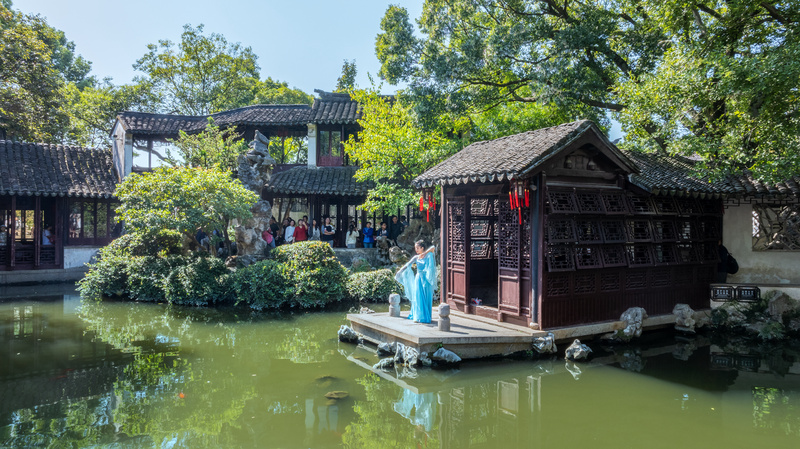
Suzhou Tuisi Yuan.
The garden’s name, “Tuisi Yuan,” is derived from a phrase in the ancient Chinese text, the Zuo Zhuan, which translates to “advance in thought and loyalty, retreat in thought to amend one’s errors.” This philosophical underpinning reflects the garden’s serene atmosphere, designed to provoke introspection and contemplation.
Ren Lansheng enlisted the talents of local painter Yuan Long to create the garden, which showcases an innovative layout that defies conventional garden design. The garden is meticulously arranged from west to east, featuring halls, living quarters, a central courtyard, and a stunningly crafted garden. The latter is particularly noteworthy, with its complex arrangement of hills and water features, creating a sense of vastness within a compact space. This clever use of design has led prominent architectural scholars, such as Chen Congzhou, to describe Tuisi Yuan as a “water town gem” and a quintessential example of Jiangnan classical gardens.
The garden’s architectural beauty is complemented by its historical significance. In 1982, Tuisi Yuan was designated as a protected cultural heritage site by Jiangsu Province. Its importance was further recognized in 2000 when it was included in the UNESCO World Heritage List as part of the Classical Gardens of Suzhou. A year later, it was declared a national key cultural relic protection unit by the State Council of China, solidifying its status as both a historical treasure and a beloved tourist destination.
Adjacent to Tuisi Yuan is the site of the Lize Girls’ School, established by Ren Lansheng’s descendant, Ren Xin. This institution played a pivotal role in promoting women’s education in the region, further enriching the historical narrative of Tuisi Yuan.
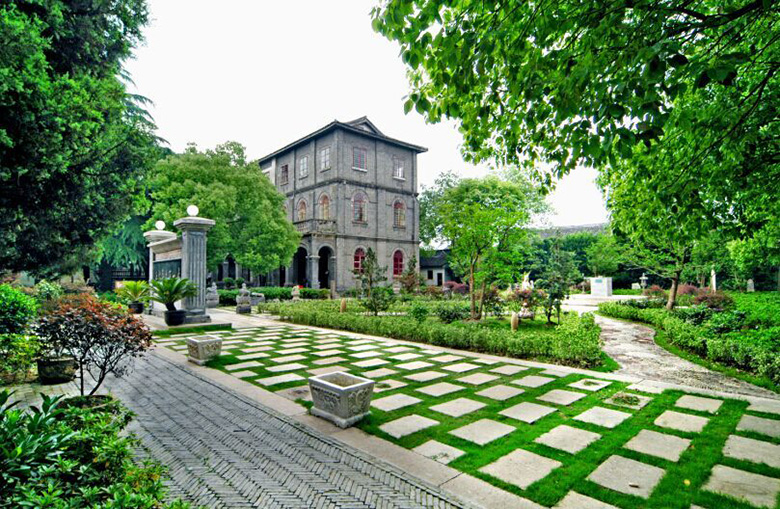
Suzhou Tuisi Yuan.
Today, visitors to Tuisi Yuan can immerse themselves in the tranquility and beauty of this garden, gaining insight not only into the artistry of traditional Chinese landscapes but also into the profound philosophical ideas that shaped its creation. The garden remains a testament to the harmony between nature and culture, inviting all who enter to pause, reflect, and appreciate the depth of its heritage.
Main Highlights: What to See at Suzhou Tuisi Yuan
Nestled within the historic water town of Tongli, Suzhou Tuisi Yuan (退思园), or the Retreat and Reflection Garden, is a quintessential example of classical Chinese landscaping that beautifully embodies the elegance of the late Qing Dynasty. Spanning approximately 5,674 square meters, this intimate garden was constructed between 1885 and 1887 and has earned its place as a UNESCO World Heritage Site, recognized for its harmonious design and cultural significance.
One of the garden’s most notable features is its innovative layout, which flows seamlessly from halls to courtyards, culminating in a picturesque garden filled with winding paths, rock formations, and tranquil waters. The design reflects a philosophy of balance and reflection, encapsulated in the garden’s name, which draws inspiration from the ancient text “Zuo Zhuan” meaning “to contemplate one’s duties and rectify past mistakes.” This profound connection to Chinese culture invites visitors to not only admire the scenery but also engage in introspection.
As you stroll through the garden, you’ll encounter intricately designed pavilions and bridges that enhance the picturesque landscape. The rear garden showcases masterful use of space, where towering rocks and flowing water create an illusion of expansive natural beauty within a compact area. This clever arrangement has earned Tuisi Yuan accolades from prominent scholars, who regard it as a standout example of Jiangnan gardens, often referring to it as a “water-side garden” due to its proximity to flowing waters.
Suzhou Tuisi Yuan.
Adjacent to Tuisi Yuan is the former Li Ze Girls’ School (丽则女学), a significant cultural site established by the garden’s second owner, Ren Xin. This historic institution serves as a reminder of the evolution of women’s education in China and adds another layer of interest to your visit. The school is home to a unique monument commemorating the students’ contributions to national movements, enriching your exploration with a glimpse into local history.
Visiting Tuisi Yuan is not just about seeing a beautiful garden; it’s about experiencing a space that has breathed life into local culture and history for over a century. Whether you’re wandering its serene paths, capturing the perfect photograph, or simply enjoying the tranquility, Tuisi Yuan offers a poignant retreat from the bustling world outside. To truly appreciate everything this garden has to offer, consider visiting during quieter hours, allowing for a deeper connection with its serene atmosphere.
Planning Your Visit: A Practical Guide
Practical Guide to Suzhou Tuisi Yuan (退思园)
When planning a visit to the enchanting Tuisi Yuan, or Retreat and Reflection Garden, nestled in the picturesque Tongli Ancient Town, here’s everything you need to know to make your experience memorable.
Location and Accessibility
Tuisi Yuan is located in the Wujiang District of Suzhou, Jiangsu Province, within the scenic Tongli Ancient Town. This charming water town is often referred to as the “Venice of the East” due to its intricate network of canals and traditional architecture.
To get there:
– By Public Transport: From Suzhou, take a bus marked with “Suzhou Tourist Transport” to Tongli. The journey takes about an hour and costs around 8 CNY. Alternatively, take a train or a taxi directly to Tongli.
– By Car: If you’re driving, ample parking is available near the entrance to the town.
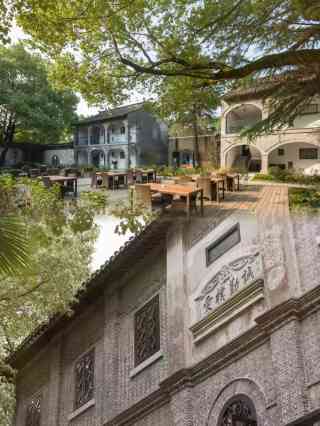
Suzhou Tuisi Yuan.
Opening Hours
Tuisi Yuan is open daily from 7:30 AM to 5:30 PM. It’s advisable to visit early in the morning or later in the afternoon to avoid the crowds, especially on weekends and holidays.
Admission Fees
The entrance fee for Tuisi Yuan is around 20 CNY. If you plan to explore more of Tongli, consider purchasing a combined ticket for about 100 CNY, which grants access to multiple attractions in the town, including Tuisi Yuan, historical museums, and other gardens.
What to Expect
Tuisi Yuan, built between 1885 and 1887, is a classic example of a Jiangnan (南方江) garden, encompassing a harmonious layout of halls, courtyards, and gardens. The design embodies the philosophy of integrating nature and architecture, offering visitors a tranquil escape amid lush greenery, serene water features, and beautifully crafted pavilions.
- Key Highlights:
- Architectural Beauty: Marvel at the intricate designs and traditional structures that reflect the elegance of late Qing Dynasty aesthetics.
- Natural Scenery: Enjoy the carefully curated landscapes with rockeries, ponds, and seasonal flowers that change throughout the year.
- Cultural Significance: Learn about the historical context of the garden and its connections to Chinese literature and philosophy.
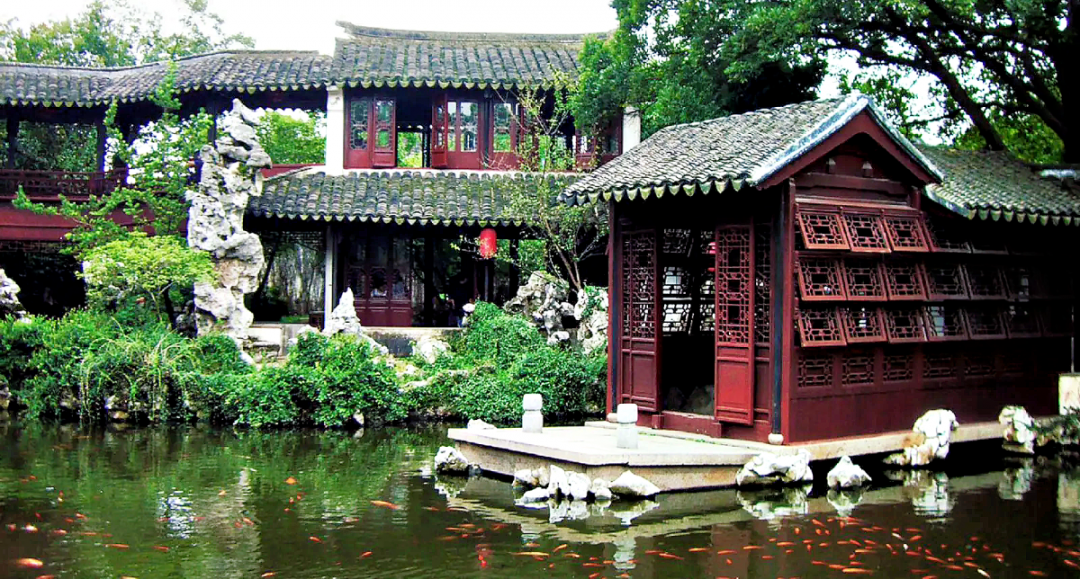
Suzhou Tuisi Yuan.
Nearby Attractions
While in Tongli, make time to visit:
– Lize Girls School (丽则女学): A historic site that now houses the China Sex Culture Museum.
– Three Bridges (三桥): A picturesque area with ancient bridges, perfect for leisurely walks and photos.
– Cultural Museums: Explore the local history through various museums featuring artifacts and exhibits related to Jiangnan culture.
Tips for Visitors
- Stay Overnight: Consider spending a night in Tongli to fully immerse yourself in the local culture and enjoy the garden’s serene ambiance after the day-trippers leave.
- Dining Options: Sample local cuisine at nearby restaurants, where you can taste specialties like lotus root and various rice dishes.
- Photography: The garden offers countless picturesque spots, so bring your camera for stunning photographs, especially during the golden hours of sunrise or sunset.
Weather Considerations
The best time to visit is during spring (April to June) and autumn (September to November) when the weather is mild and pleasant. Summer can be hot and humid, while winters are cool, so dress accordingly based on the season of your visit.
Conclusion
Tuisi Yuan is not just a garden; it’s a reflection of the historical and cultural richness of Jiangsu Province. Whether you’re a history enthusiast, a nature lover, or simply seeking peace away from the bustle of city life, this garden offers a perfect retreat. Plan your visit wisely, and you’ll leave with unforgettable memories of this hidden gem in the heart of water town charm.
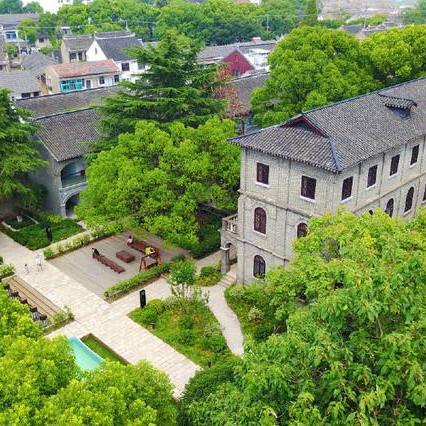
Suzhou Tuisi Yuan.
Tickets, Hours, and Booking
Visiting Suzhou’s Tuisi Garden (退思园) offers an enchanting glimpse into classical Chinese landscaping and architecture. Here’s everything you need to know about ticket pricing and options for this historical gem.
Ticket Information
Admission Fees:
– Tuisi Garden: 20 CNY per person.
– Tongli Ancient Town Comprehensive Ticket: 100 CNY, which includes access to ten major attractions within the town, including Tuisi Garden, Historical Exhibition Hall, and several other notable sites.
Discounts:
– Free admission for children under 1.1 meters tall.
– Half-price tickets for children between 1.1 and 1.3 meters.
– Senior citizens (60 years and older) can benefit from discounted tickets:
– Half price for residents of Jiangsu Province.
– 20% off for non-residents.
– Free admission for seniors over 70 years and active military personnel.
Operating Hours:
Tuisi Garden is open daily from 7:30 AM to 5:30 PM, allowing ample time for visitors to explore the serene pathways and exquisite landscapes.
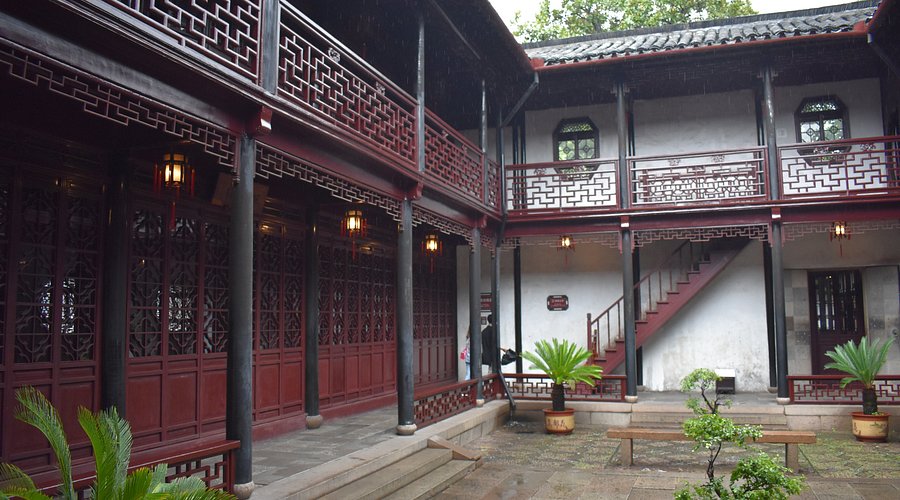
Suzhou Tuisi Yuan.
Purchasing Tickets:
Tickets can be purchased at the site or online in advance, which is highly recommended to avoid long queues, especially during peak tourist seasons. Additionally, you may consider a combined ticket for the ancient town to maximize your visit.
Tips for Visiting:
– It is advisable to visit during weekdays or off-peak hours to enjoy a quieter experience.
– Arriving early allows you to appreciate the beauty of the garden before the crowds arrive.
Immerse yourself in the tranquil beauty of Tuisi Garden, where every corner reveals the artistry of traditional Chinese landscape design.
How to Get There
To reach Suzhou Tuisi Yuan (退思园), located in the picturesque Tongli Ancient Town, several transportation options are available that cater to both local and international travelers.
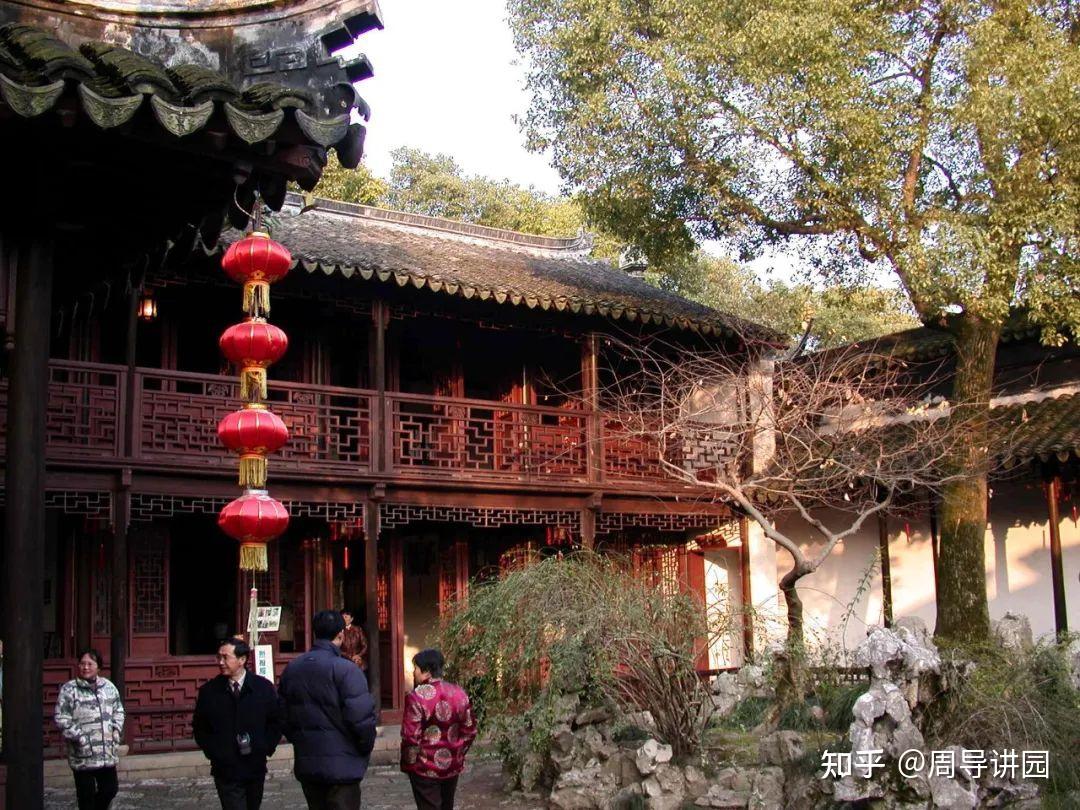
Suzhou Tuisi Yuan.
Getting There
By Train:
The nearest major railway station is Suzhou Railway Station. High-speed trains connect Suzhou with major cities, including Shanghai, Nanjing, and Hangzhou. Once you arrive at Suzhou, you can transfer to a bus or taxi for the final leg of your journey to Tongli.
By Bus:
From Suzhou, you can take a direct bus to Tongli Ancient Town. Buses depart frequently from Suzhou’s main bus station, and the journey typically takes about one hour. Tickets are affordable, usually around 8 RMB. Look for the buses labeled “Suzhou Tourist Transportation,” which will take you directly to Tongli.
By Taxi:
If you prefer a more private mode of transportation, taxis are readily available in Suzhou. The taxi ride from Suzhou to Tongli takes approximately 40-60 minutes, depending on traffic conditions. Ensure that the driver is familiar with the destination, or consider using a navigation app to assist.
By Car:
For those who wish to drive, Tongli is accessible by car via the G318 national highway. There are parking lots available near the entrance of the ancient town. Keep in mind that the town itself is pedestrian-friendly, and vehicles are restricted within its scenic areas.
Local Transportation in Tongli
Once in Tongli, you’ll find that the best way to explore the ancient town and its stunning landscapes, including Tuisi Yuan, is on foot. The town is known for its charming canals and well-preserved architecture, making it perfect for leisurely strolls.
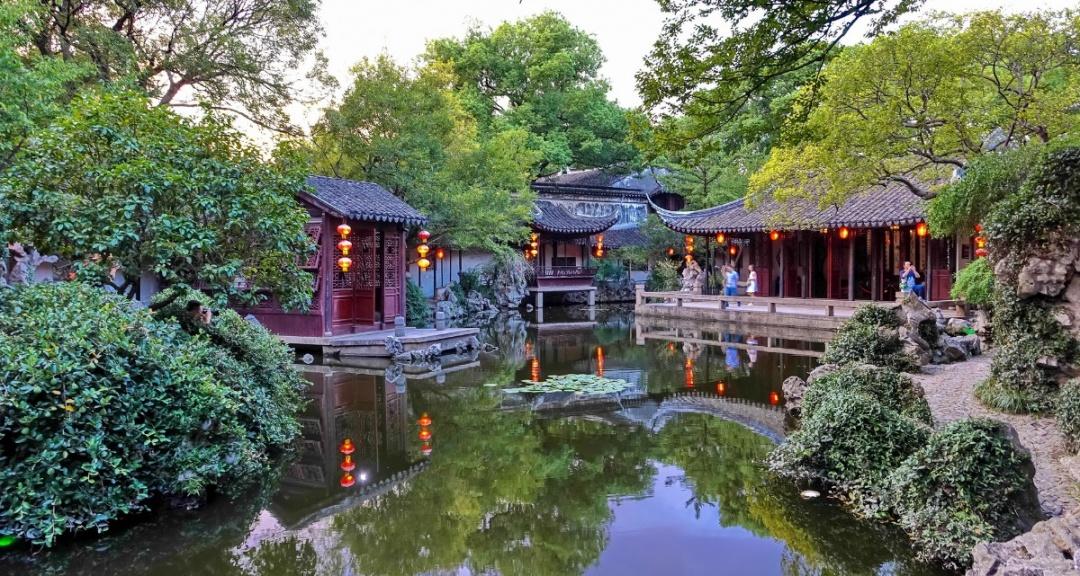
Suzhou Tuisi Yuan.
Electric Buses:
In addition to walking, there are electric shuttle buses operating within Tongli, providing convenient access to various attractions, including Tuisi Yuan. These buses are an eco-friendly option to navigate between sights, especially on hot days.
Traditional Boats:
For a unique experience, consider taking a traditional wooden boat ride through Tongli’s waterways. This not only gives you a different perspective of the town but also allows you to enjoy the serene waterway ambiance that has earned Tongli its nickname, the “Venice of the East.”
Tickets
Entry to Tuisi Yuan is included in the general ticket for the ancient town, which allows access to several other attractions. It’s advisable to purchase tickets in advance, especially during peak travel seasons, to avoid long lines.
Best Travel Tips
- Timing: Visit during weekdays if possible, as weekends and holidays can see a surge in visitors.
- Footwear: Comfortable shoes are recommended, as exploring the cobblestone streets and gardens requires a fair amount of walking.
- Weather: Check the weather forecast before your trip, and dress accordingly, as the climate can vary throughout the year.
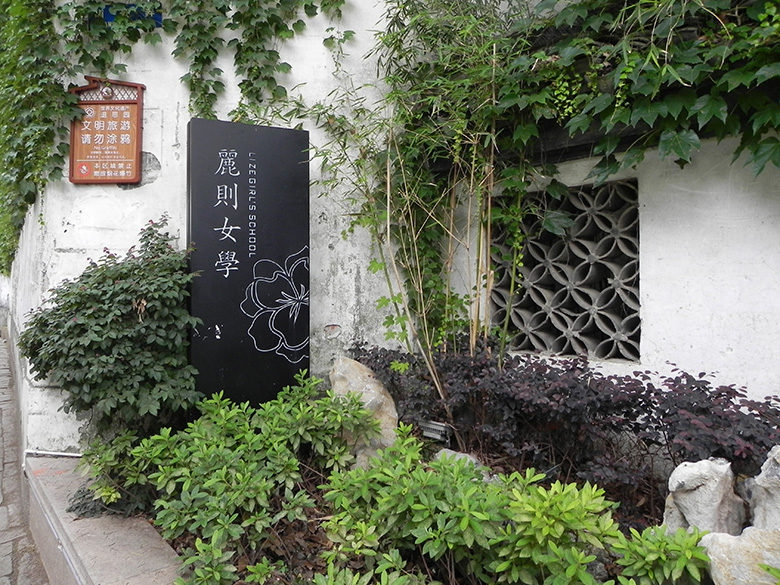
Suzhou Tuisi Yuan.
With these transportation options and tips, reaching and exploring Suzhou Tuisi Yuan and Tongli Ancient Town will be a delightful experience. Enjoy your visit to this beautiful and historic area!
Local Cuisine and Accommodation
When visiting Suzhou’s enchanting Tuisi Garden (退思园), you’ll find plenty of delightful dining options and cozy accommodations that enhance your experience in this picturesque water town.
Dining Options
In the heart of Tongli, you can savor authentic local flavors that reflect the rich culinary traditions of the region. Here are some standout places to dine:
-
Lüjia Inn (吕家客栈): This charming guesthouse not only offers comfortable lodging but also features a restaurant with a lovely view of Jili Bridge (吉利桥). Guests can enjoy local dishes while watching cormorants fishing in the nearby waters, adding an extra touch of character to the meal.
-
Tongli’s Traditional Suzhou Cuisine Restaurants: Several eateries scattered throughout the town serve classic Suzhou dishes. Don’t miss trying Suan Ni Bai Rou (蒜泥白肉), a garlic-flavored pork dish served cold, and the famed Tongli Wine Rice Cake (同里酒酿饼), a sweet treat made from glutinous rice and fermented rice wine.
-
Tea Houses: Experience the local tea culture by visiting a traditional tea house, such as Nan Yuan Tea House (南园茶社). Here, you can relax with a cup of fragrant tea while enjoying the serene atmosphere of the garden-like setting.
-
Street Food: As you stroll through the ancient streets, sample local street food delicacies like Stir-fried Lotus Root (炒藕片) and Sweetened Taro Balls (甜芋圆). These snacks are perfect for a quick bite while exploring the town.
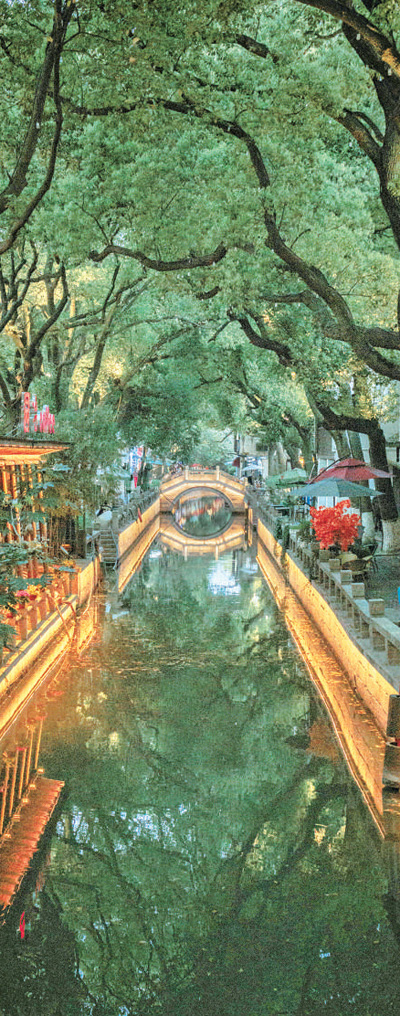
Suzhou Tuisi Yuan.
Accommodation Recommendations
Finding the right place to stay can enhance your visit to Tuisi Garden. Here are a few options that cater to various preferences and budgets:
-
Lüjia Inn (吕家客栈): As mentioned, this guesthouse is centrally located in Tongli, making it an excellent base for exploring the area. It combines convenience with cozy accommodations, and the friendly staff often go the extra mile to ensure guests feel at home.
-
Tongli Ancient Town Hotel: For travelers seeking a more traditional experience, this hotel is designed to reflect the architecture of ancient Chinese homes. Its proximity to key attractions makes it a convenient choice for those wanting to immerse themselves in the local culture.
-
Tongli Huayuan Hotel: Offering modern amenities and comfortable rooms, this hotel is ideal for travelers looking for a blend of luxury and local charm. The hotel has beautiful gardens and is just a short walk from the main attractions.
-
Local Guesthouses: Scattered throughout the waterways of Tongli, various guesthouses provide a more intimate experience. Many are housed in ancient buildings and offer a glimpse into traditional life, complete with personalized service and home-cooked meals.
Tips for Your Stay
- Book in advance: Especially during weekends or holidays, accommodations can fill up quickly. Reserve your room ahead of time to ensure you have a place to stay.
- Consider the off-peak season: Visiting during weekdays or off-peak times can lead to a quieter experience, allowing you to enjoy both the garden and the town without the crowds.
- Ask for local recommendations: Your hosts can often provide insider tips on the best dining spots and hidden gems around Tongli, enhancing your overall experience.
With its delightful dining experiences and comfortable accommodations, a visit to Tuisi Garden promises to be a memorable one. Whether you are savoring local delicacies or unwinding in a charming guesthouse, the enchanting atmosphere of Suzhou’s waterways will leave a lasting impression.
Frequently Asked Questions
Frequently Asked Questions About Suzhou Tuisi Yuan
1. What is Suzhou Tuisi Yuan?
Suzhou Tuisi Yuan, also known as the Retreat and Reflection Garden, is a classic Chinese garden located in Tongli Ancient Town, Suzhou. Established between 1885 and 1887 during the Qing Dynasty, it is renowned for its exquisite design, reflecting the philosophical essence of harmony between nature and architecture.
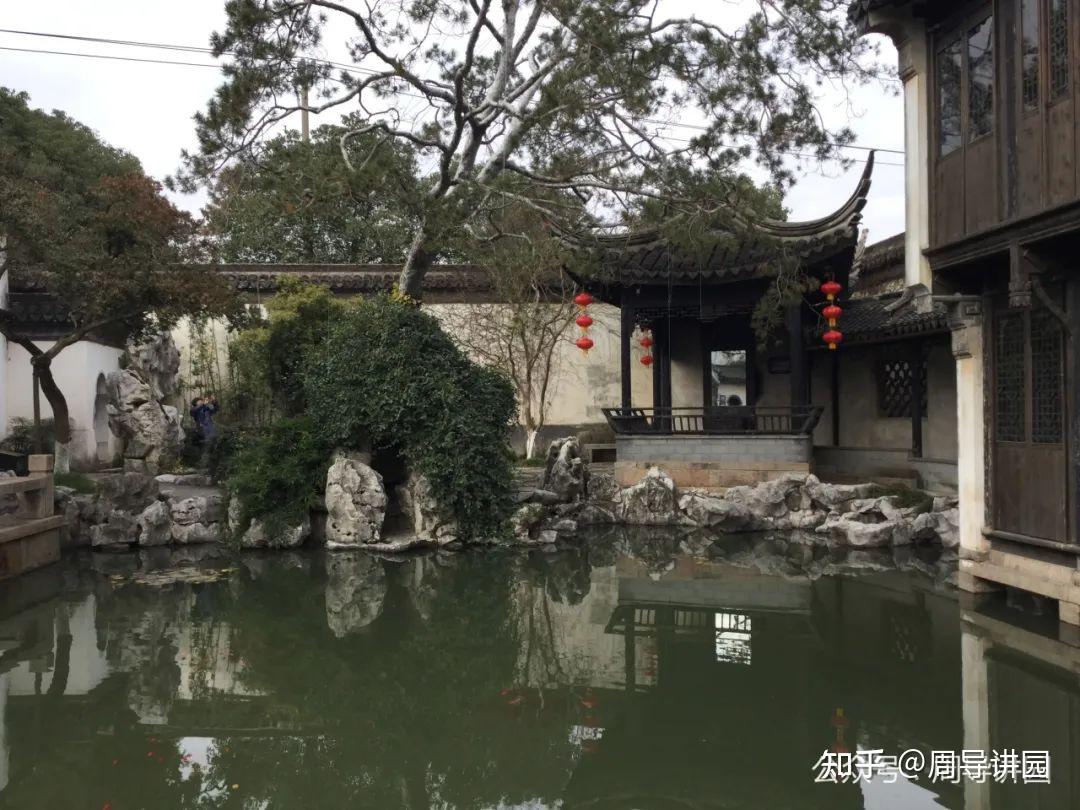
Suzhou Tuisi Yuan.
2. How do I get to Suzhou Tuisi Yuan?
To reach Suzhou Tuisi Yuan, you can travel to Suzhou first and then take a bus to Tongli Ancient Town. Buses labeled “Suzhou Tourism” or smaller vans are available, usually costing around 8 RMB and taking approximately 40 minutes to an hour.
3. What are the opening hours?
The garden is open daily from 7:30 AM to 5:30 PM, allowing ample time to explore its beautiful landscapes and architectural features.
4. Is there an entrance fee?
Yes, the entrance fee for Suzhou Tuisi Yuan is typically 20 RMB. However, you can purchase a combined ticket for Tongli Ancient Town that includes access to multiple attractions, including Tuisi Yuan.
5. What should I wear when visiting?
Comfortable clothing and shoes are recommended, as you will be walking on various pathways and may want to spend time sitting and enjoying the garden scenery. Bringing a hat and sunscreen is also advisable, especially in sunny weather.
6. Are there any guided tours available?
Yes, guided tours are available and can enhance your experience by providing historical and cultural insights about the garden and its significance. It is advisable to book in advance, especially during peak tourist seasons.
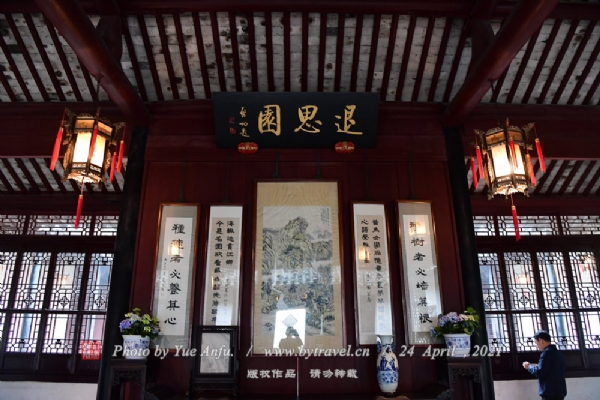
Suzhou Tuisi Yuan.
7. Can I take photos inside the garden?
Photography is allowed in Suzhou Tuisi Yuan, and many visitors enjoy capturing the picturesque views of the garden’s structures, ponds, and surrounding nature. Early mornings or late afternoons are ideal for less crowded photos.
8. Are there any amenities nearby?
Yes, there are cafes and shops in Tongli Ancient Town where you can enjoy local snacks and drinks. Additionally, visitor centers are available for assistance, providing maps and information about the area.
Final Thoughts on Your Trip
Visiting Suzhou’s Tuisi Yuan is more than just a stroll through a beautiful garden; it’s an immersion into the rich tapestry of Chinese history and culture. This exquisite classical garden, with its intricate design and serene atmosphere, invites you to reflect on the philosophies of life that shaped its creation. As you wander through its carefully curated landscapes, you can almost hear the whispers of the past, echoing the thoughts of its original designer, Ren Lansheng, and the artists who contributed to its beauty.
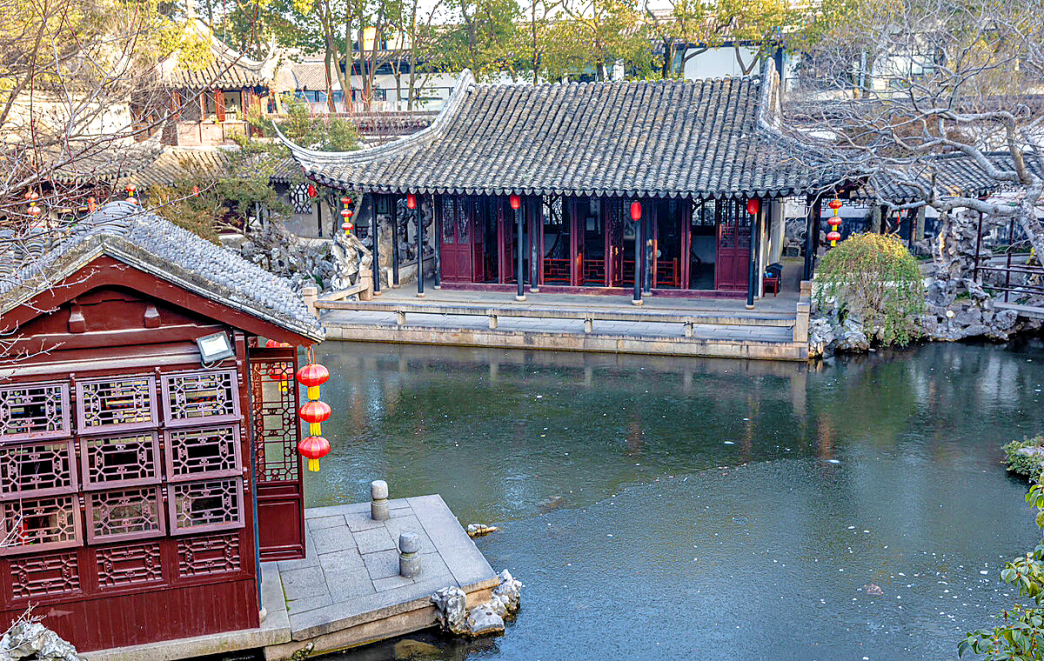
Suzhou Tuisi Yuan.
Whether you’re captivated by the elegance of the pavilions, enchanted by the tranquil ponds, or inspired by the stories embedded in its architecture, Tuisi Yuan offers a unique glimpse into the artistry of Jiangnan gardens. It’s a reminder that in the hustle and bustle of modern life, there is always a space for contemplation and appreciation of nature’s beauty.
As you conclude your visit, carry with you not only the memories of this enchanting place but also the deeper understanding of its cultural significance. Tuisi Yuan stands as a testament to the enduring legacy of classical Chinese gardens, inviting all who enter to pause, reflect, and find peace amidst its beauty. Embrace the tranquility of this garden, and let it inspire you as you continue your journey through the magnificent landscapes of Suzhou and beyond.

